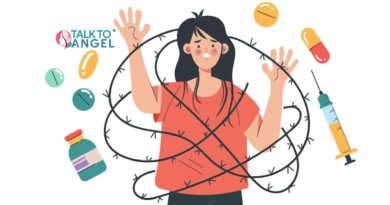Helping a Loved One with Addiction Counseling
Addiction represents a complex issue that impacts not only the person suffering from it but also their relatives and social circle. Assisting a cherished individual during their recovery journey necessitates patience, empathy, and fortitude. This guide provides actionable steps to help your loved one overcome addiction while maintaining your emotional well-being.
1. Educate Yourself About Addiction
Addiction is a complex, chronic condition that alters the brain’s reward system, often influencing behavior and emotions. Educating yourself about its causes, symptoms, and treatment options is essential for offering compassionate and informed support. Reliable resources, such as medical professionals, online educational platforms, and support groups, can provide valuable insights.
2. Show Unconditional Love and Support
Individuals facing addiction frequently endure feelings of guilt, shame, and social isolation. Offering nonjudgmental support can help them feel understood and valued. Listen actively, validate their feelings, and remind them of your unconditional love.
While showing compassion, avoid enabling harmful behaviors. Aim to achieve a harmonious balance between providing emotional support and fostering a sense of accountability.
3. Set Healthy Boundaries
Addiction can lead to behaviors like manipulation or financial dependency. Establishing clear boundaries is crucial for your well-being and motivating your loved one toward recovery. For instance, you might refuse to tolerate substance use in your home or decline to provide financial support that could fund your addiction.
Healthy boundaries protect you emotionally and help create an environment conducive to recovery.
4. Encourage Professional Help
Recovery from addiction often requires professional intervention. Encourage your loved one to seek help from addiction specialists, therapists, or rehabilitation centers. Approaches like Cognitive Behavioral Therapy (CBT), Dialectical Behavior Therapy (DBT), and Motivational Interviewing (MI) have proven effective in addressing addiction and its root causes.
Be patient if they resist treatment; fear or denial can make the first step difficult. Provide reassurance and information about available resources to help ease their concerns.
5. Be Prepared for Relapse
Relapse is a common aspect of the recovery process and should not be viewed as an indication of failure. Instead, treat setbacks as opportunities to learn and refine coping strategies. Encourage your loved one to re-engage with treatment and remind them that recovery is a journey.
6. Practice Self-Care
Assisting an individual in their journey of addiction recovery can significantly impact their mental and emotional well-being. Prioritize self-care by engaging in activities that bring you joy, seeking support from friends or groups like Al-Anon or Nar-Anon, and considering therapy for yourself.
Taking care of yourself ensures that you can continue to provide meaningful support to your loved one.
7. Celebrate Small Victories
Recovery represents a difficult journey, making acknowledging and celebrating even the most minor achievements essential. Whether it’s attending a therapy session, achieving a week of sobriety, or adopting a healthier lifestyle, acknowledging progress can motivate your loved one and strengthen their commitment to recovery.
8. Seek Support When Needed
Should the responsibility of supporting your loved one become too burdensome, it is advisable to seek professional assistance without hesitation. Therapy or counseling can provide you with tools to cope and navigate this challenging journey effectively.
How ThePsychowellness Can Help
ThePsychowellness, based in New Delhi, offers personalized addiction recovery services designed to meet the unique needs of each individual. Their multidisciplinary team includes clinical psychologists and therapists with extensive expertise in addiction, trauma, and mental health concerns. Notable professionals include:
- Dr. R. K. Suri – Clinical Psychologist who possesses more than 40 years of expertise in the fields of hypnotherapy, psychoanalysis, and neuropsychological evaluation.
- Ms. Gurleen Kaur – Specializes in treating addiction, anxiety, bipolar disorder, and adjustment issues using a compassionate therapeutic approach.
- Mr. Utkarsh Yadav – Focuses on stress management, anxiety reduction, and navigating life transitions effectively.
- Ms. Sakshi Dhankar – Provides counseling for emotional challenges, including anxiety and depression.
- Ms. Mansi – An expert in relationship therapy and emotional well-being.
- Ms. Sangeeta Pal – Skilled in mindfulness-based therapies for managing anxiety and depression.
- Ms. Drishti Gakhar – Specializes in child and adolescent counseling, addressing behavioral and emotional concerns.
- Ms. Riya Rathi – A Counseling Psychologist experienced in CBT and evidence-based approaches for stress and anxiety.
- Dr. Afroz S Khan – Focuses on psychotherapy for trauma, depression, and self-esteem enhancement.
- Ms. Srishti Jain – Specialist in relationship guidance and promoting personal growth.
- Ms. Tanu Sangwan – Specializes in therapy for career-related challenges, anxiety, and depression.
At ThePsychowellness, clients benefit from evidence-based therapeutic interventions, including:
- Cognitive Behavioral Therapy (CBT): A method that helps individuals identify and alter harmful thought patterns and behaviors.
- Mindfulness-Based Interventions: Techniques that assist in managing cravings and maintaining focus during recovery.
- Family Therapy: Offers guidance for families to build supportive environments and overcome shared challenges.
The center creates structured treatment plans tailored to address underlying issues like anxiety, depression, or trauma. Their holistic approach emphasizes not only emotional healing but also physical wellness and long-term recovery.
To accommodate diverse needs, ThePsychowellness provides both in-person and online therapy sessions, ensuring accessibility for individuals and families seeking support.
How TalkToAngel Can Help
TalkToAngel is an online counseling platform connecting clients with licensed professionals specializing in addiction recovery. It offers flexibility, privacy, and accessibility, making it an ideal option for those who prefer virtual support.
TalkToAngel’s services include:
- One-on-One Online Counseling: Personalized therapy sessions with experienced psychologists.
- Therapies like CBT, DBT, and ACT: Proven approaches to managing cravings, identifying triggers, and building resilience.
- Relapse Prevention Strategies: Equips clients with tools to maintain sobriety and handle setbacks effectively.
- Flexible Scheduling: Sessions are available at convenient times to fit into your routine.
TalkToAngel also supports families, offering guidance on setting boundaries, practicing self-care, and understanding addiction. With its user-friendly platform and compassionate approach, TalkToAngel makes it easier for individuals to take the first step toward recovery.
Conclusion
Assisting a cherished individual in overcoming addiction entails a process characterized by empathy, perseverance, and insight. By educating yourself, offering unconditional support, setting healthy boundaries, and encouraging professional help, you can play a vital role in their recovery.
ThePsychowellness provides in-person counseling with experienced professionals who craft personalized treatment plans to address addiction and related issues. Meanwhile, TalkToAngel offers the convenience of online therapy, connecting individuals and families with expert therapists specializing in addiction recovery.
Recovery is possible, and with the right support, your loved one can regain control of their life. Take the first step today and explore the resources available at ThePsychowellness and TalkToAngel. A brighter, healthier future awaits.
References
- Lander, L., Howsare, J., & Byrne, M. (2013). The impact of substance use disorders on families and children: From theory to practice. Social Work in Public Health, 28(3-4), 194–205. https://doi.org/10.1080/19371918.2013.759005
- Marlatt, G. A., & Donovan, D. M. (2005). Relapse prevention: Maintenance strategies in the treatment of addictive behaviors. Guilford Press.
- Miller, W. R., & Rollnick, S. (2012). Motivational interviewing: Helping people change (3rd ed.). Guilford Press.
- National Institute on Drug Abuse. (2023). Understanding drug use and addiction. Retrieved from https://nida.nih.gov
Substance Abuse and Mental Health Services Administration. (2023). Family therapy can help: For people in recovery from mental illness or addiction. Retrieved from https://samhsa.gov




